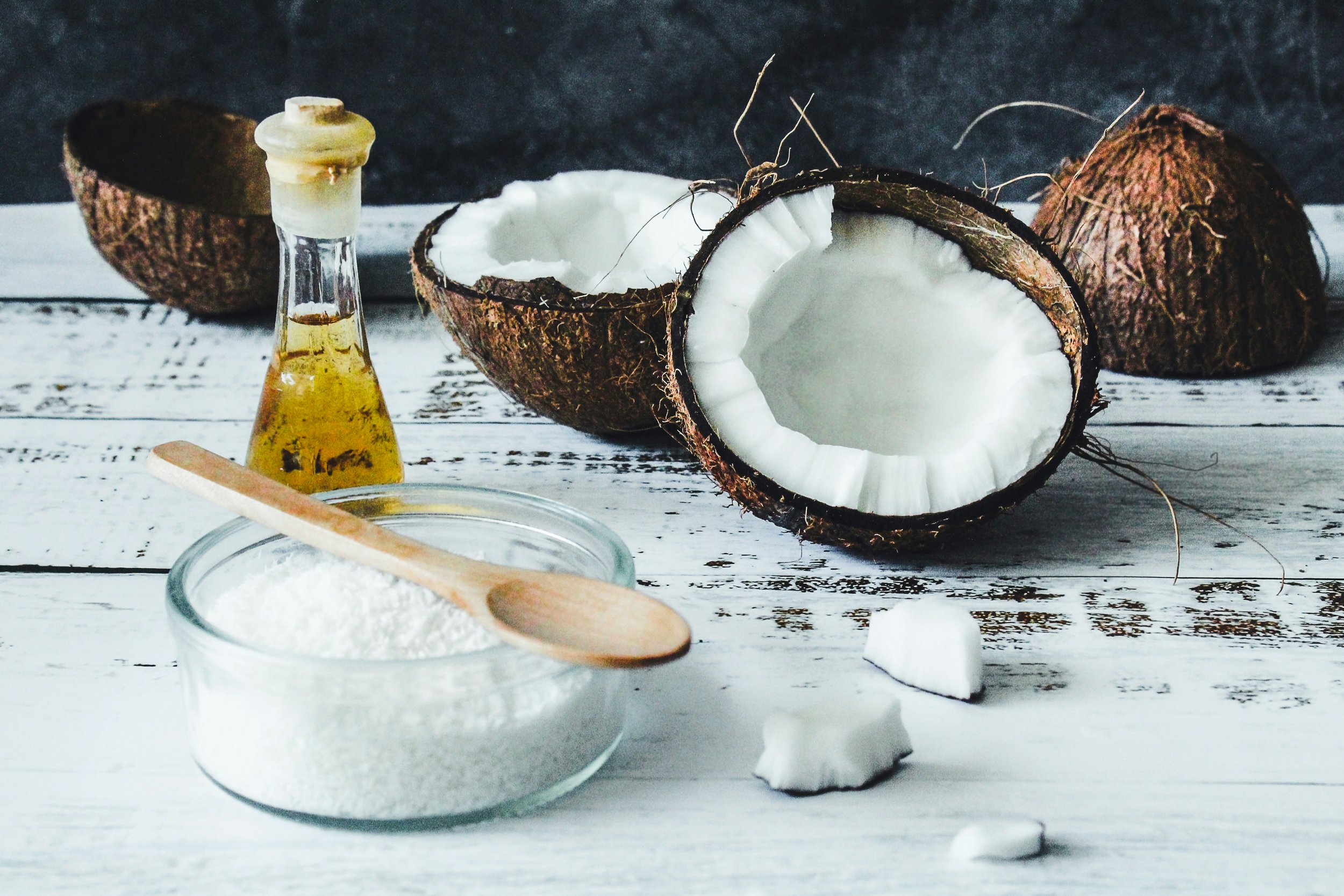Coconut Oil: Is it a Cure to Childhood Eczema?
If your child is struggling with childhood eczema, you may have received advice from strangers to try coconut oil as a treatment. It’s a commonly used “natural” remedy for many skin issues. However, amidst the hype, it's crucial to separate myth from fact when trying coconut oil for your child’s eczema management.
While there are few studies that look at the effectiveness of coconut oil in relieving eczema symptoms, a small double blind Philippine study comparing mineral oil and virgin coconut oil on children with mild to severe eczema showed an improvement of 68% on SCORAD scores for coconut oil compared to 38% for mineral oil. This study used virgin coconut oil (VCO) because the refining process of regular coconut oil uses chemicals that may affect sensitive skin.
Coconut oil may also help address inflammation, a hallmark of childhood eczema. One recent very technical study found that it can reduce inflammatory markers and protect the skin by enhancing skin barrier.
Myth #1: Coconut Oil Is a Cure-All for Childhood Eczema
Childhood eczema is a complex condition influenced by genetics, environmental factors, and immune system dysregulation. Coconut oil can provide temporary relief but does not address the underlying causes of your child’s eczema.
One of the key benefits of coconut oil is its ability to moisturize the skin. The fatty acids in coconut oil help replenish the skin's natural barrier, preventing moisture loss and reducing dryness. If your child has childhood eczema, applying coconut oil to affected areas can provide relief from itching and irritation, especially during flare-ups. First, be sure to test it out on a small patch of skin to make sure it doesn’t cause further irritation (see below under Myth #2).
Myth #2: Coconut Oil Is Suitable for All Types of Childhood Eczema
Coconut oil may not be suitable for everyone. Childhood eczema is a diverse condition with various subtypes, ranging from mild to severe. For kids with severe childhood eczema or those prone to allergic reactions, coconut oil may exacerbate symptoms rather than provide relief. Consult with your child’s physician or dermatologist before adding coconut oil to your child’s eczema management routine.
Before using coconut oil on your child’s eczema-prone skin, it's advisable to conduct a patch test to assess for any adverse reactions. Apply a small amount of coconut oil to a small patch of skin and monitor for any signs of irritation or allergic reaction. If redness, itching, or inflammation occurs, discontinue use immediately and consult with a healthcare professional.
Myth #3: Coconut Oil Alone Will Manage Your Child’s Eczema
Your child’s eczema probably needs a holistic approach that addresses triggers, maintains proper skin care practices, and relies on medical guidance. Incorporating coconut oil into your child’s comprehensive eczema management plan can complement other strategies and provide additional relief for your child's skin.
Coconut oil holds promise as a natural remedy for eczema, but it's essential to approach its use with caution and realism. By understanding the myths and facts surrounding coconut oil for childhood eczema, you can tailor your child’s eczema management strategies to best meet their needs.
Learn more about the effectiveness of other natural remedies for childhood eczema and subscribe to our newsletter to stay informed on the latest research!


